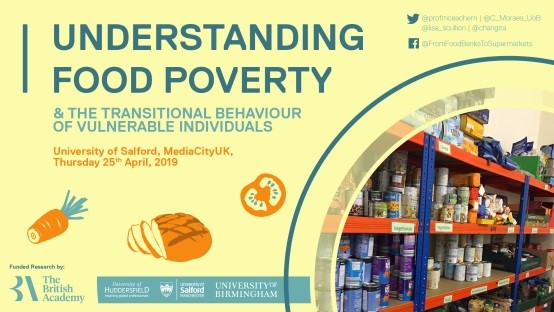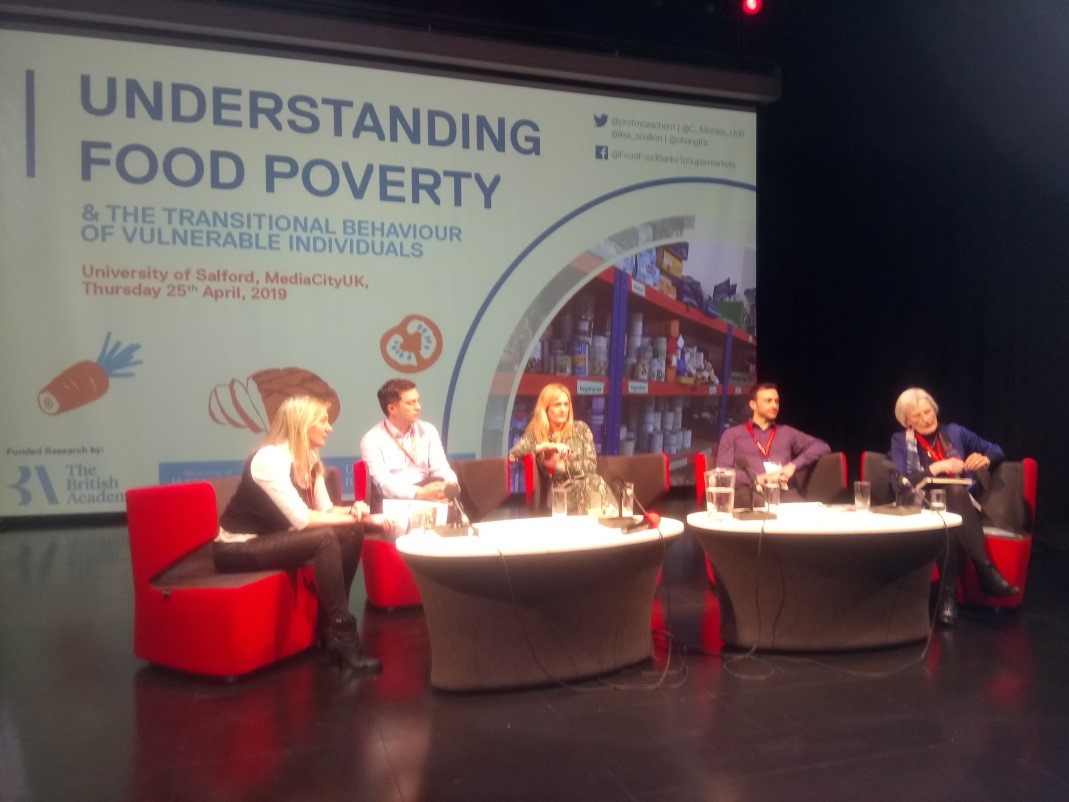
Deputy Director of Huddersfield Business School’s Centre for Sustainability, Responsibility, Governance and Ethics (SURGE), Professor Morven McEachern, along with her colleagues from the University of Birmingham (Dr Caroline Moraes) and the University of Salford (Prof Lisa Scullion, Dr Andrea Gibbons) welcomed delegates from across the UK to a British Academy/Leverhulme end of project dissemination event at Media City, Salford. The event investigated the temporal experience of austerity and food access exclusion in Greater Manchester and the city of Birmingham areas. The event brought together stakeholders across business, government, charities, academia and society to discuss key questions around food poverty and poverty in general.
Featuring local government perspectives, Cllr. John Cotton, Labour Councillor for Glebe Farm & Tile Cross Ward, Birmingham, expressed his ‘moral outrage’ at the growing need for foodbanks and of rising food poverty in general. Similarly, Paul Dennett, City Mayor of Salford, criticised the state of 21st Century Britain concerning rising food poverty and called for social change.
Drawing on the experiences of a range of key emergency food providers and the users of these food services in Greater Manchester and Birmingham, our findings revealed that a state of prolonged vulnerability exists for too many people, leading them to transition from emergency food consumption states to a longer-lasting use of alternative types of food aid such as food clubs or pantries. Contrary to the dominant media discourse, the stigma attached to using community-based food banks and food aid was evident and continues to act as a barrier to seeking support. Aside from the food itself, meeting new people, forging new relationships of mutual support and the food aid services help participants to engender a sense of community, reciprocity and duty of care towards themselves, others and the community volunteers who help. This is particularly the case in independent food aid providers. All of these elements, in turn, help to create positive coping strategies that help people to deal with the negative effects of perceived stigma, personal circumstances and lack of support from core welfare systems and government services.
While many food aid providers discussed at length the range of support activities they had on offer, there were concerns this could contribute to advancing the institutionalisation of food banks in the UK. Therefore, it is essential to concede that we cannot resolve food insecurity without addressing the impact of welfare reform and austerity, to which much of food poverty is attributable.
The final part of the event involved a panel discussion on our research findings and the challenges of eliminating poverty, which involved the viewpoints of Mike Hawking (Joseph Rowntree Foundation), Catherine Connors (Salford City Council), Tom Skinner (Greater Manchester Poverty Action) and Kate Cooper (Birmingham Food Council).

